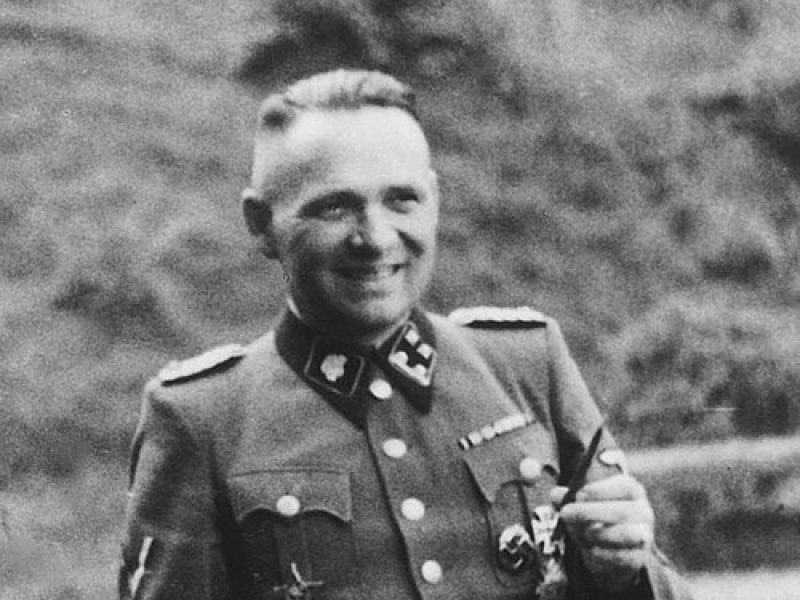Winning the Peace
April 2025
This year marks the 80th anniversary of the concluding chapters of World War II. In this context, I am especially grateful for a feature article from former military chaplain, Fr Brian Fennessy. With the terrible loss of life on both sides of this war and the destruction of peoples' homes and ways of life, this article offers some deep insights into the possibility of repentance and forgiveness. In the context of current international instability and the conflict being experienced around the world, are world leaders looking to history and the wisdom which comes from it? Yet, this article offers hope. In the words of St John Henry Newman: "Lead kindly light, amid the encircling gloom." Ken Joblin - Inform Editor
by Fr Brian Fennessy, Parish Priest of ‘Our Lady of the Plains Parish’, Selwyn and a former Army Chaplain
This year we commemorate the 80th Anniversary of the end of WWII: VE Day on 8 May and VJ Day on 15 August. It is a noteworthy Anniversary.
The atrocities of the Third Reich became clear when the Soviets liberated Auschwitz on 27 January 1945; the British liberated Bergen-Belsen on 15 April; and the Americans liberated Dachau two weeks later. January 27 is now observed as ‘Holocaust Remembrance Day.’
After the War, ‘Winning the Peace’ was a major concern. Hitler became Chancellor and the Nazi Party came to power in 1933; by 1945 a generation of Germans had only known the Nazi Regime; young males became members of the Hitler Youth, and girls joined the League of German Girls. In Germany, denazification was a major project.

Rebuilding Germany under the Marshall Plan was the means to rebuild the infrastructure. Denazification, taking responsibility for Nazi crimes, bringing people guilty of atrocities to justice, and the end goal of achieving reconciliation, were more complicated.
The Nuremberg Trials, and the Trials in other countries, were a means of bringing justice. Whether the Trials would stand modern scrutiny is another question. As we know, few Nazi Leaders acknowledged their guilt. However, the story of Rudolf Höss is interesting. Rudolf Höss was the infamous commandant
of Auschwitz Concentration Camp. As commandant, he perfected the techniques of mass murder, such as the use of Zyklon B and the crematoria. The three Camps that comprised Auschwitz were renowned for their brutality. At the end of the War, he was the only senior SS Officer to confess his sins. Rudolf Höss was hanged on site at the Auschwitz Camp on 16 April 1947; he was 47. Ironically, he was the last person to die at Auschwitz.

Recently, I came across a copy of a lecture by John Jay Hughes at the Archbishop Gerety Lecture at Seton Hall University, on 25 March 1998. It is a great story about the process of repentance, forgiveness, and reconciliation.
Forgiveness from the persecuted was also a need. The story of Corrie ten Boom provides a good account of the difficulty in making the decision to forgive.
Corrie had been a prisoner at Ravensbrück Concentration Camp. After the War
she preached a message of repentance around Europe. Her sincerity was tested at a Gathering in Munich when a former guard came up to her after the meeting.
She wrote: ‘He came up to me as the church was emptying … his hand was thrust out to shake mine. And I, who had preached so often to the people in Bloemendaal the need to forgive, kept my hand at my side.
Even as the angry, vengeful thoughts boiled through me, I saw the sin of them. Jesus Christ had died for this man; was I going to ask for more? Lord Jesus, I prayed, forgive me and help me to forgive him.
I tried to smile, I struggled to raise my hand. I could not. I felt nothing, not the slightest spark of warmth or charity. And so again I breathed a silent prayer. Jesus, I cannot forgive him. Give me your forgiveness.
As I took his hand the most incredible thing happened. From my shoulder along my arm and through my hand a current seemed to pass from me to him, while into my heart sprang a love for this stranger that almost overwhelmed me.
And so I discovered that it is not on
our forgiveness any more than on our goodness that the world’s healing hinges, but on his. When he tells us to love
our enemies, he gives along with his command, the love itself.”
Rudolf Höss had been baptised a Catholic in 1901. His parents were devout Catholics; however, his father was strict in his Catholic observance. In his younger days Rudolf was devoted to his faith. However, it seems that over an incident of confidentiality he lost his confidence in the Catholic Church.
As a youth, during the First World War, he served with distinction in the Middle East.
After the War, in 1922, he formally left the Catholic Church. In time, he joined the Nazi Party and began an association with Heinrich Himmler and Martin Bormann. It was Himmler who invited Rudolf to join the SS in 1934. He served at Dachau and Sachsenhausen Camps, and in April 1940 he was appointed Commandant to the newly established Auschwitz Camp in Poland. Rudolf was a loyal Nazi; he supported their racial purity policy and the ‘Final Solution.’
There is a paradoxical element to his role as commandant at Auschwitz because his family home was adjacent to the Camp. It was impossible to ignore the reality of the Camp. After the War, he was able to evade capture for ten months, until March 1946, when he was arrested by British Military Police. He was initially taken to Nuremberg, but as Auschwitz was in Poland, his trial began in Warsaw on 5 March 1947.

Over the three-week trial, he accepted responsibility for everything that happened at Auschwitz. His ideology was ingrained in him, but while in prison he came to acknowledge that this ideology was based on the wrong premise.
After initial rough treatment in Poland, the Polish prosecutor intervened. Of his treatment thereafter, he wrote, “In Polish prisons I experienced for the first time what human kindness is. Despite all
that has happened I have experienced humane treatment which I could never have expected, and which has deeply shamed me.” Rudolf Höss’ story reminds us of the silent witness of the Polish guards in living the Gospel message.
After he was sentenced to death, he seemed to have reflected on his actions. He wrote his memoir and requested to see a priest. In his memoir he wrote about his actions and didn’t disguise
his role at Auschwitz. The communist Polish authorities delayed the request
to see a priest, however, in time a priest came to see him. We don’t know what he said to the priest, but over the six-day period, before his execution, he made a formal profession of his Catholic Faith, made his confession, and received holy communion.
During this six-day period he wrote a farewell letter to his wife:
My misspent life places on you, dearest, the sacred obligation to educate our children so that they have, in their deepest heart, a true humanity … Make them sensitive to all human sorrow. What humanity is, I have only come
to know since I have been in Polish prisons. Although I have inflicted so much destruction and sorrow upon
the Polish people as Commandant of Auschwitz, even though I did not do it personally, or by my own free will, they still showed such human understanding, not only the high officials, but also the common guards, that it often puts me
to shame. Many of them were former prisoners in Auschwitz or other camps. Especially now, during my last days, I am experiencing such humane treatment I could never have expected. In spite of everything that happened, they still treat me as a human being.’
The story of Höss does raise the question - was the collapse of Germany a cause for his repentance? People may ask, ‘how is a man capable of extreme inhumanity able to accept his sin?’
Repentance is a journey, not a single act. Höss may not have completed his journey, but he had started his road of repentance.
However, during the final weeks of his life, Rudolf Höss accepted the Gospel and celebrated the sacraments, but perhaps, equally importantly, he experienced the humane treatment of his jailers who revealed the presence of Christ in action. Human kindness led him to reflect on his life and reconnect with his Catholic heritage.
In the concluding words of Hughes’ Lecture: ‘the laity are called in a special way to make the church present and operative in those places and circumstances where only through them can she become the salt of the earth’.
Winning the Peace’ is the goal of all conflicts. ‘Winning the Peace’ is achieved by endeavouring to live a humane and practical Christian Faith. Corrie ten Boom and Rudolf Höss provide us with the complexity of forgiveness and repentance, but they also both illustrate the freedom achieved by forgiveness.
The ODE
They went with songs to the battle, they were young, Straight of limb, true of eye, steady and aglow.
They were staunch to the end against odds uncounted, They fell with their faces to the foe.
They shall grow not old, as we that are left grow old: Age shall not weary them, nor the years condemn.
At the going down of the sun and in the morning
We will remember them.
Published in Inform Issue 144 - Lent 2025
